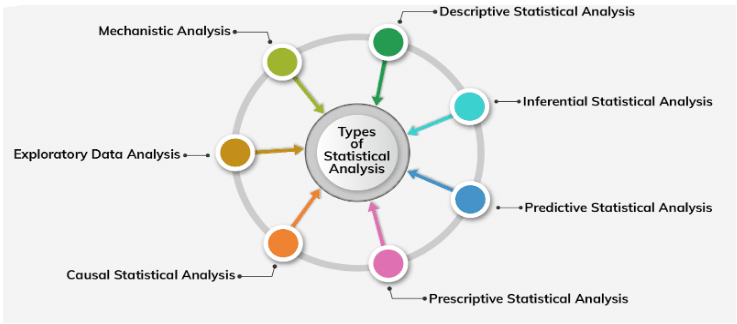
Welcome to our blog series on quantitative analysis methods in engineering research. In this series, we will explore the quantitative analysis methods necessary to advance technology knowledge and practice. This month, our focus is on statistical analysis – the cornerstone of technical analysis. We will explore its importance further, highlighting various sub-methods of statistics. Subsequent blogs will provide a detailed insight into each statistical approach, before exploring other methods of quantitative analysis including statistical modeling, simulation and computer analysis, experiential design and analysis, quantitative risk analysis, and time series analysis.
Statistical analysis is important in engineering analysis, and it is a powerful tool for filtering through complexity, identifying patterns, and making informed decisions. Using statistical methods, engineers can extract meaningful insights from data, allowing them to optimize processes, predict outcomes, and drive innovation.
The importance of statistical techniques in engineering analysis cannot be overstated. They enable researchers to:
• Identify patterns and relationships in the data.
• Disseminate accurate information from sample data to the general public.
• Carefully design experiments and rigorously interpret results.
Statistical methods include several subcategories, each serving a specific purpose in engineering analysis.

Figure: Subcategories of Statistical Analysis (courtesy www.wordsdoctorate.com)
As depicted from the figure, highlights include:
To summarize, statistical techniques play an important role in engineering analysis, providing valuable insights and inspiring developments in various fields. Stay tuned for our upcoming blogs, where we will explore each statistical technique in depth. Let’s unlock together the power of quantitative analysis in engineering research!


Peer-reviewed academic research platform dedicated to scholarly research by researchers, practitioners, and students worldwide. Explore, collaborate, and share insights to enrich knowledge and enhance professional practices for a global impact
Copyright © 2025 by JOISS®️ Research. All Rights Reserved.
Website Design & Developed By UML Digital
Copyright © 2025 by JOISS®️ Research. All Rights Reserved.
Website Design & Developed By UML Digital